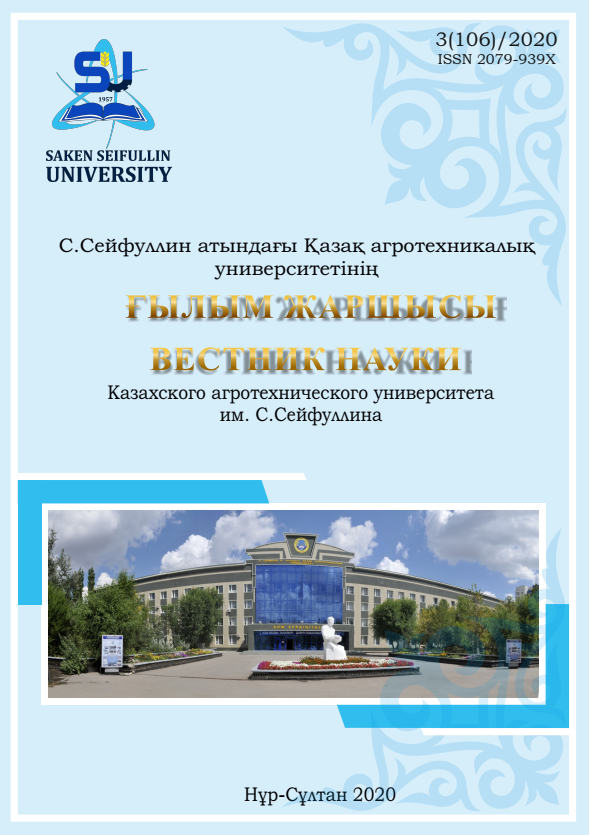STUDY OF THE WHEAT GRASS COLLECTION IN THE CONDITIONS OF THE AKMOLA REGION
DOI:
https://doi.org/10.47100/herald.v1i3.69Keywords:
wheat grass, variety, breeding, collection, yield, herbage , dry basis, seeds, crude protein, crude fiber.Abstract
Extracted samples will be used later in the field of breeding, as the sources of herbage, dry basis and seeds of high crop yield, winter and drought resistance, resistance to major diseases and depredators.In the collected crop of saplings of 2014 by their group of economical features and qualities, which contain high croped yield of green mass, dry substance, winter hardy and drought hardy seeds, there were 3 samples of wheat grass such as , eremic wheat grass 4-KL-1349, eremic wheat grass3-KL-1348(Kazakhstan, Pavlodar oblysy), crested, thichspike wheat grass 5-K-4493, IK-2768 (Kazakhstan, Aqmola oblysy), in comparison with the standards of Karabalykskyi 202 (540,2 g/m2; 215,0 g/m2; 23,2 g/m2 respectively), exceeded to 5,4-40,5% and in comparison with standards of Batyr (557,1 g/m2; 211,3 g/m2; 20,7 g/m2 respectively) exceeded to 2,2-40,5%.These samples will be used in the process of selection as sources of high croped yield of green mass, dry substance, winter hardy and drought hardy seeds to the main diseases and vermins.On materials of dissertation one research paper has been published.Downloads
Published
2020-09-01 — Updated on 2021-02-03
Issue
Section
Agricultural sciences

